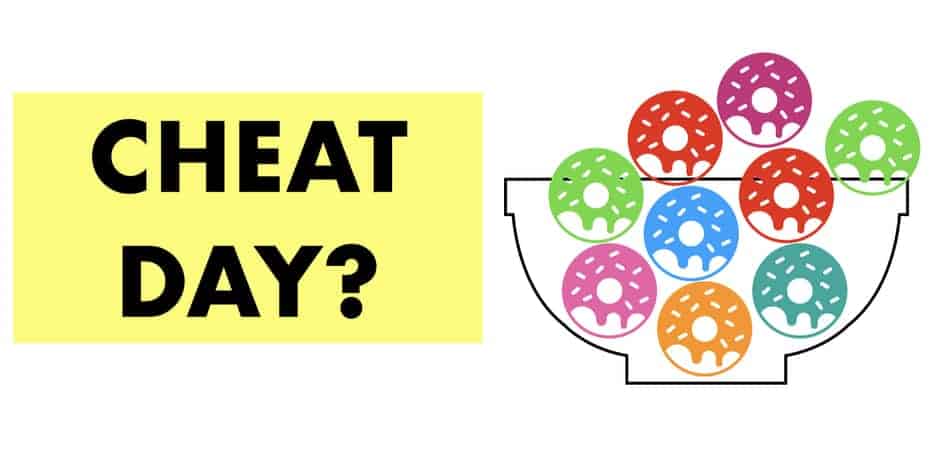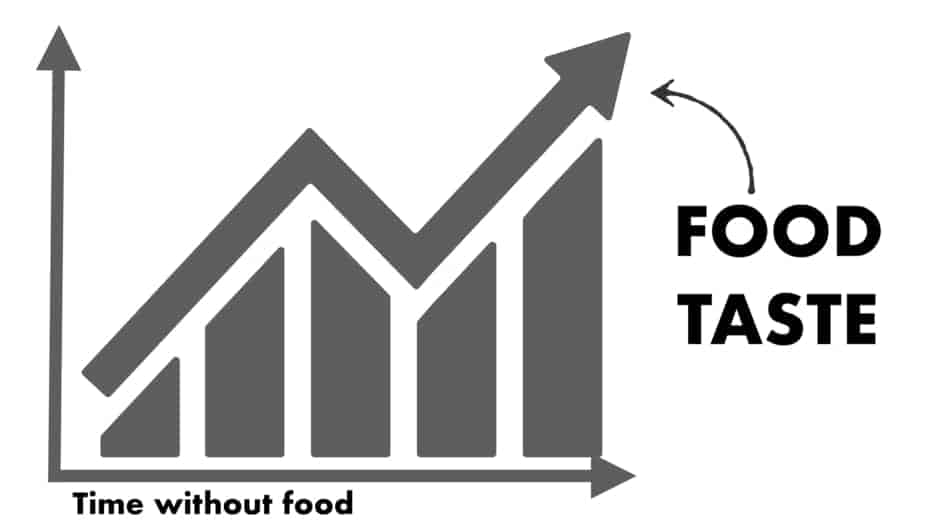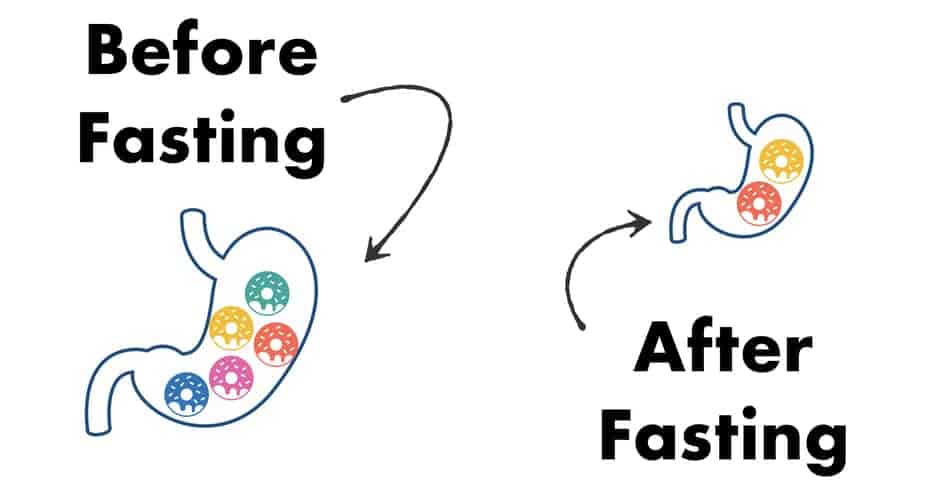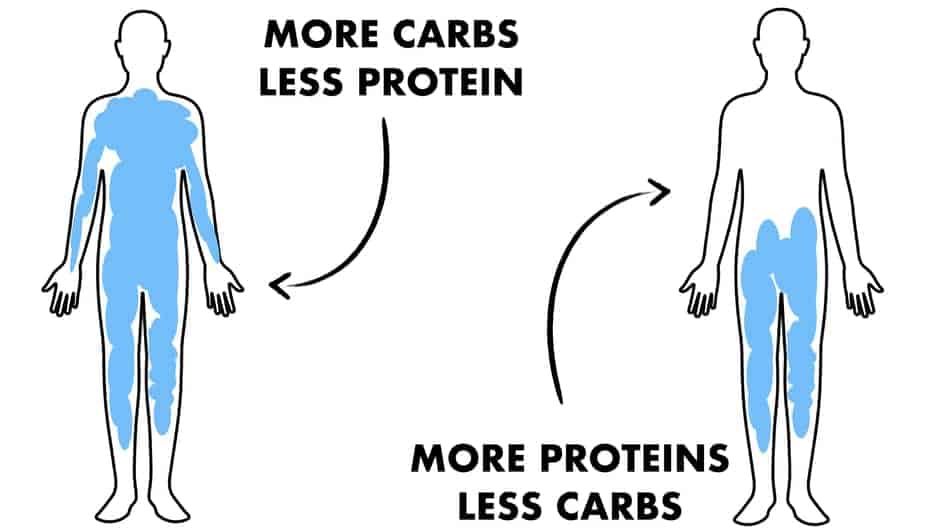One of the most anticipated moments of any diet is having a cheat day. So in this post, I will explain to you how many calories should you have on a cheat day.
On a cheat day, you should be having 2000 – 3000 calories. The number will strongly depend on the frequency of your cheat days, physical activity, and types of foods. Short-term carbohydrate overfeeding leads to greater energy expenditure and leptin concentration, comparing to fat overfeeding.
High leptin concentration means you will get fuller and consume fewer calories in total. Overeating on fat will lead to less satiety, which means you can end up eating more food than necessary (source).

What Happens After A Cheat Day
After a cheat day, several processes happen in your body as an effect of overfeeding. Consumption of excess calories above the daily caloric requirements will result in weight gain. However, sporadic cheat days will also have a positive psychological effect after a long period of a caloric deficit.
Also, after a cheat day, your body will temporarily increase the basal metabolic rate because of the additional thermogenic effect of food. This means you will burn more calories as your body needs to convert all the extra energy, and extract nutrients from the food.
Which sound like a good news. Because body needs to burn more energy, just to convert more energy. So it’s not all that bad.
However, regardless of slightly increased energy expenditure, you will still store any extra calories that are above your daily caloric requirements. So to make your cheat days less corrosive, here are the things you can consider doing:
- Eat more proteins – proteins have the highest satiety score and are more expensive to digest. This means your body needs more energy to convert and extract proteins than simple sugar. This means you will feel full with less food, so potentially you won’t consume too much. And you will increase your calorie expenditure just to digest those proteins.
- Eat carbs instead of fat – as mention before, carbs have higher satiety than fats, they lower ghrelin (the hunger hormone) better and increase leptin (satiety hormone). So choosing more carbohydrate-based foods will have a less negative effect on the body.
- Eat slowly – eating slowly helps you get fuller sooner, regardless of the food you eat. It takes around 20-minutes for satiety signals to kick in. So by consciously slowing down, you may end up eating significantly less food but still enjoy it.
- Eat when you are physically hungry – eating only when you’re physically hungry means you don’t grab food every hour because you feel bored or because it takes good. This way you will eat less, even on a cheat day with a less negative impact on your body.
Related article: One Meal A Day For Beginners
How Often Should I Have A Cheat Day?
You should have a cheat day no often than once every two weeks. Having a cheat day twice a month can be part of your regular diet and be an opportunity to celebrate your efforts with delicious food. Going out to a restaurant, or cooking something special can become a healthy ritual.
If you’re on caloric restriction, then you will appreciate your food so much more. A long period of not eating or intermittent fasting significantly stimulates nasal chemosensory, improves your olfaction and palatability, which means food takes so much better (source).
You can experience that when you do shopping on an empty stomach and all of a sudden food smells are much more apparent. This means when you are on caloric restriction, your food will taste so much better, because of that olfaction sensitivity.
So use cheat day as an opportunity to really enjoy something delicious, not just to gobble on food for the sake of having a cheat day.

Cheat Meal vs Cheat Day
The big difference between a cheat day and a cheat meal is that on the cheat day you can consume an unlimited amount of calories because you eat what you want all day. On cheat meal, you get to only eat what you want on one meal, therefore it has a less negative effect on body composition.
This also means it can be done on a more regular basis. Because one cheat meal is much better than a whole day of cheat meals. You can consume only so many calories during one meal, even if you overfeed yourself. So if your goal is body composition, then having a cheat meal is a much better option.
On the other hand, if you’re physically active, and you prefer to have a long day of eating what you want, then a cheat day can be beneficial if you follow up with a fasting day immediately after.
Doing intermittent fasting like one meal a day will help you reduce the impact of your overfeeding and allow you to eliminate some anxiety and guilt from eating too much.
Related article: Can You Have A Cheat Day On OMAD?
Can You Fast After A Cheat Day?
You can do fasting after a cheat day to balance the impact of the excess calories that you put on from your cheat day. People who overeat can feel guilty about themselves, so having a full day of fasting will help to not only reduce calories but will calm the stress down.
This method is very common among the people who are doing intermittent fasting and sporadically have a cheat day. After doing intermittent fasting for a period of time, your body gets accustomed to eating less due to stomach capacity reduction (source). So over time, you will feel full with substantially less food.
Therefore, even when you have a cheat day, you won’t eat as that many calories as you would normally eat. This change in change in gastric capacity is not only due to intermittent fasting but to any long-term caloric restrictions where you simply eat less for a long period of time.

How Many Cheat Meals A Week?
Depending on your goals, for optimum body composition, you shouldn’t have more than one cheat meal per week. More cheat meals lead to overfeeding and can significantly slow down your progress. It takes additional 3000 calories per week to halt the process, or even cause you to gain weight.
But this will vary, depending on your activity level. The less active you are, the more impact one cheat meal will have. For sedentary people, depending on the meal size, having one cheat meal can be enough to stop the process. If you consume food high in fat, carbohydrates, and alcohol, it can add up easily to exceed 3000 calories.
For physically active people one cheat meal won’t make a significant difference, however, it will slow down the process to some extend.
How Long Does It Take To Recover From A Cheat Day?
If you eat 6000 calories in one day it can take 7-10 days to fully recover from a cheat day, where If you eat 3000 calories, it can take 3-5 days. Recovery will depend on the amount of food you’ve consumed, your current body composition, body weight, diet, and the frequency of your cheat days.
People who are physically active will recover faster because of the body constantly is using energy to move around. Also, people who are in caloric deficit for most days will take faster to recover, assuming they are back on their regular diet.
Remember that after a cheat day, depending on if you eat carbohydrates or not, you may experience a temporary increase in weight due to extra water. For every gram of carbohydrates, the body stores 3-4 grams of water. So if you’re on a low carb low caloric diet, you will gain a lot of water weight just because of overfeeding with carbs (source).

In Conclusion
The number of calories on your cheat day will depend on factors like body composition, physical activity, current diet, and frequency of those meals. In theory, there is no limit to the calories that you want to consume. However, depending on your goals you need to keep in mind that just one cheat day can set you back for a week.
Also depending on the types of foods you choose, wherewith high protein and high carbs the leptin levels seem to spike so people end up having more satiety comparing to high-fat foods.
